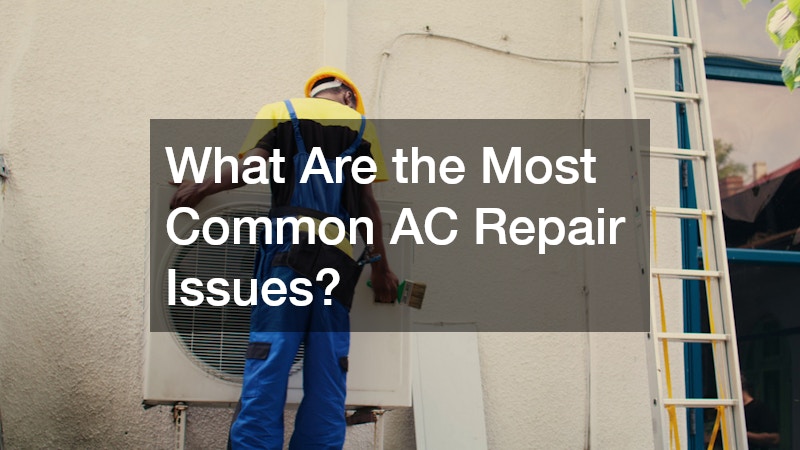
Air conditioning systems are crucial for comfort, especially in sweltering summer months. However, like any other home appliance, they are susceptible to wear and tear. Understanding common AC repair issues can help homeowners take preventive measures and keep their systems running efficiently. In this article, we'll delve into some of the most frequent problems plaguing air conditioners, providing insights into how you can address them effectively.
Video Source
One of the prevalent issues that necessitate ac repair is refrigerant leaks. The refrigerant is a vital component of the AC, as it absorbs heat and provides cool air. When there's a leak, the unit cannot perform optimally, leading to increased energy bills and an inability to cool your home effectively. Homeowners might notice their AC is not cooling as it should or there's a hissing sound indicative of a leak. In such cases, professional repair is essential not only to fix the leak but also to ensure the unit is recharged with the right amount of refrigerant, restoring its efficiency.
Refrigerant leaks can also result from poor maintenance practices. Regular servicing and checks can help in early detection and prevention of leaks. A licensed technician can use specialized equipment to test pressure levels and detect leaks early. During maintenance, cleaning coils and ensuring components are in good condition also mitigates the risk of leaks causing extensive damage. Not attending to refrigerant leaks can severely impair the functioning of an AC unit, leading to further issues such as compressor damage.
Ignoring refrigerant leaks not only affects cooling but also poses environmental concerns. Leaked refrigerant substances contribute to ozone depletion. Additionally, certain types of refrigerants, if released into the environment, can be harmful to both flora and fauna. By promptly addressing leaks, homeowners can ensure that they are not inadvertently causing harm to the environment. The costs associated with repairing leaks are often justified by the savings in energy bills and environmental considerations.
Neglecting to clean or replace air filters is another common issue leading to frequent AC repairs. Over time, filters accumulate dirt, dust, and other airborne particles, restricting airflow. This can cause the AC unit to overwork to cool the space, shortening its lifespan and escalating electricity costs. Dirty filters not only burden the AC system but also compromise indoor air quality, aggravating respiratory conditions. Regularly checking and replacing filters can enhance the performance of your air conditioning system significantly.
Coils also play a crucial role in the cooling process of an AC. Evaporator coils should be checked yearly and cleaned as necessary to ensure they can adequately absorb heat. Similarly, condenser coils located in outdoor units can become dirty if the surroundings are dusty or there is foliage nearby. Blocked coils mean the system has to work harder, leading to increased wear and tear. Cleaning coils can prevent overheating, and this simple maintenance can be performed alongside routine filter changes.
A clogged filter or dirty coil can lead to a scenario called "frozen evaporator." The coil freezes due to reduced airflow and the accumulation of dust and dirt. This severely impacts the cooling capability and can sometimes cause the entire unit to shut down. Preventive maintenance, including keeping the coils and filters clean, is important to avoid such common issues. Homeowners investing in periodic maintenance can extend the life of their AC systems and ensure they're operating at maximum efficiency.
Modern air conditioners often come equipped with sensors that measure ambient temperature and regulate the cooling cycle. However, these sensors are prone to malfunction due to damage or misalignment. A faulty sensor can lead to uneven cooling or cause the AC to cycle on and off inconsistently. Such irregular operations not only discomfort users but also contribute to increased wear and tear on the AC. Homeowners experiencing these issues should have their AC inspected by a technician, who can calibrate or replace the sensor as needed.
In addition to malfunctioning sensors, issues with electrical connections interfacing with sensors can cause failures. Wires can become loose or frayed over time, especially in older units, causing erratic sensor performance. Regular check-ups by qualified technicians can identify and fix these electrical problems before they escalate. Such preventive care not only ensures optimal performance but prolongs the life span of the air conditioning system, forestalling costlier repairs in the future.
.